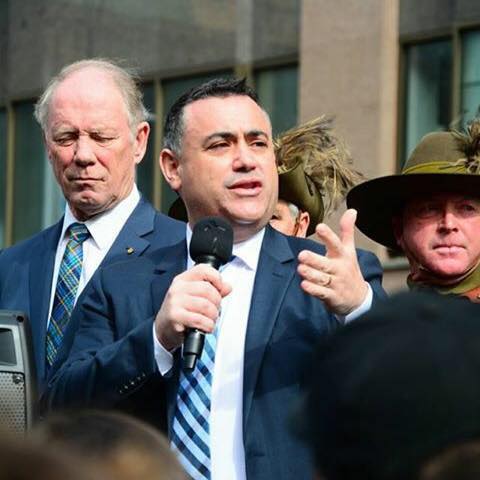News
Australian state government proposes protecting wild horses

New South Wales Deputy Premier John Barilaro said Monday that his government had struck a balanced response to ecological concerns about the impact of the horses, known as brumbies, on Kosciuszko National Park. (Photo: John Barilaro/Facebook)
CANBERRA, Australia – An Australian state government has decided to legally protect rather than kill thousands of wild horses, infuriating scientists who argue the feral species is doing severe environmental damage to the country’s iconic Snowy Mountains alpine region.
New South Wales Deputy Premier John Barilaro said Monday that his government had struck a balanced response to ecological concerns about the impact of the horses, known as brumbies, on Kosciuszko National Park.
A 2016 government report had recommended that 90 per cent of the park’s 6,000 brumbies be killed, reducing the herd to 600 in the 6,900 square kilometres (2,700 square miles) of mountainous wilderness that includes Australia’s highest mainland peak, Mount Kosciuszko, and the nation’s most popular ski fields.
Barilaro said legislation will be introduced to state parliament this week that will recognize the heritage value of the brumbies to the park and ban killing them. But brumbies will be relocated from environmentally sensitive areas.
“There is no clear answer. For all the people who are happy today, there’ll be some who won’t be,” Barilaro told Australian Broadcasting Corp.
“The pro-brumby people say it hasn’t gone far enough and of course the conservationists and environmentalists will say this has gone too far,” he added. “I think we’ve got a balanced approach.”
The brumby’s place in the state’s largest national park, through which the Snowy River flows, is an emotive argument in Australia. The horses have been both a feral pest and an integral part of Australian frontier folklore for almost two centuries.
Brumbies feature in one of Australians’ most beloved poems, “The Man From Snowy River,” about a horseman’s perilous chase down a mountainside after a mob of brumbies. Banjo Paterson’s poem, first published in 1890, inspired the 1982 20th Century Fox movie of the same name. The wild horse was also showcased at the Sydney Olympics in 2000 as a significant part of Australian heritage.
Conservation groups accused the government of putting at risk dozens of native species through the proposed bill.
An independent scientific committee recently found that brumbies were endangering more than 20 plant species and seven animal species, including three endangered frogs, in the park.
National Conservation Council chief executive Kate Smolski said the brumby was the “most destructive pest species” in the state’s alpine region.
The National Parks Association of New South Wales accused the government of valuing introduced species over native wildlife.
“The decision is an international embarrassment,” chief executive Alix Goodwin said.





















